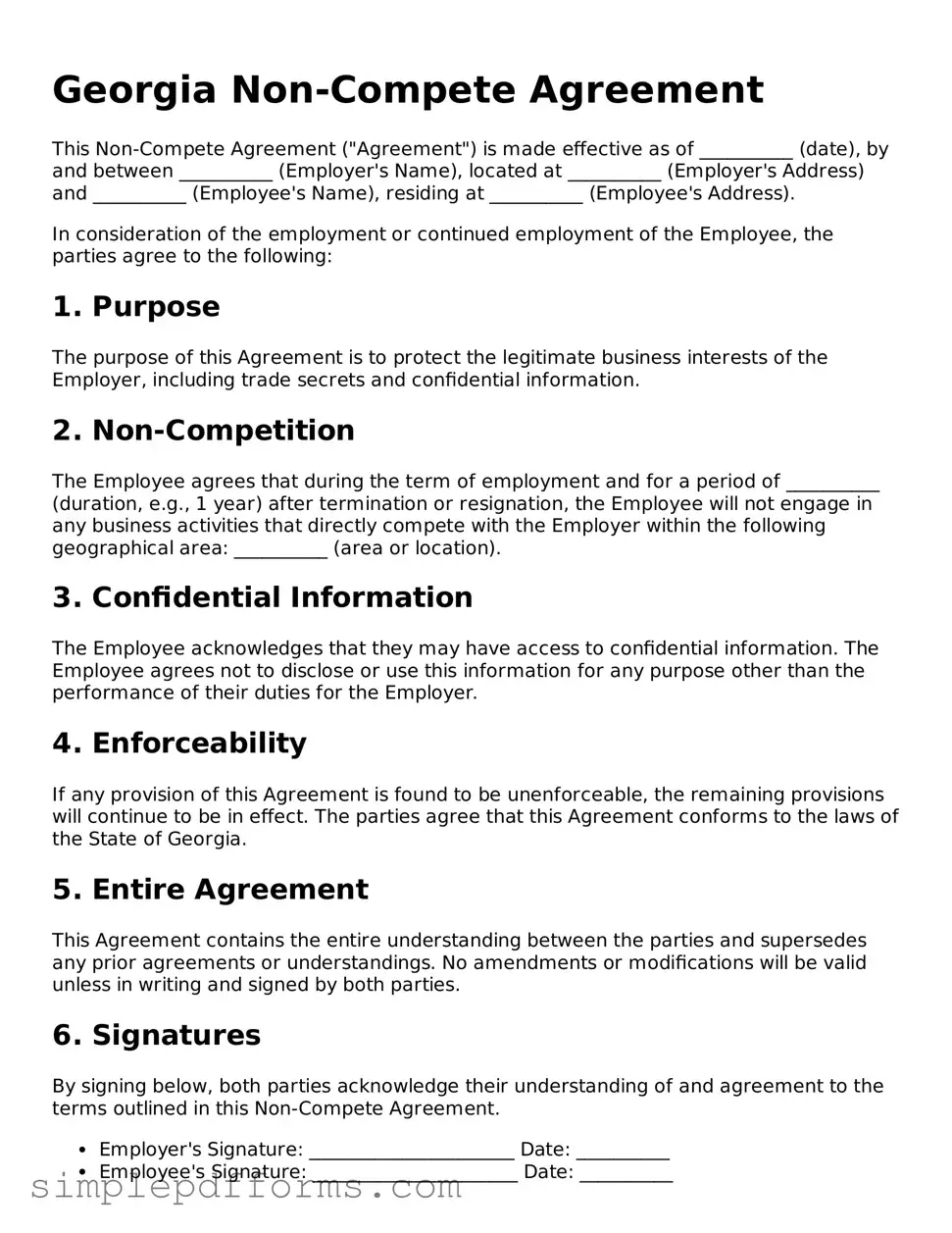Attorney-Verified Non-compete Agreement Document for Georgia State
A Georgia Non-compete Agreement form is a legal document that restricts an employee from engaging in certain activities that could compete with their employer after leaving the company. This agreement aims to protect the employer's business interests while providing clear guidelines for the employee. Understanding its terms is crucial for both parties involved.
Open Non-compete Agreement Editor Now

Attorney-Verified Non-compete Agreement Document for Georgia State
Open Non-compete Agreement Editor Now

Open Non-compete Agreement Editor Now
or
Get Non-compete Agreement PDF Form
Your form is waiting for completion
Complete Non-compete Agreement online in minutes with ease.